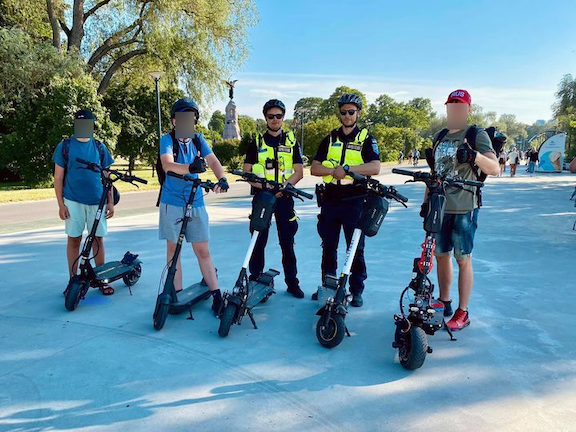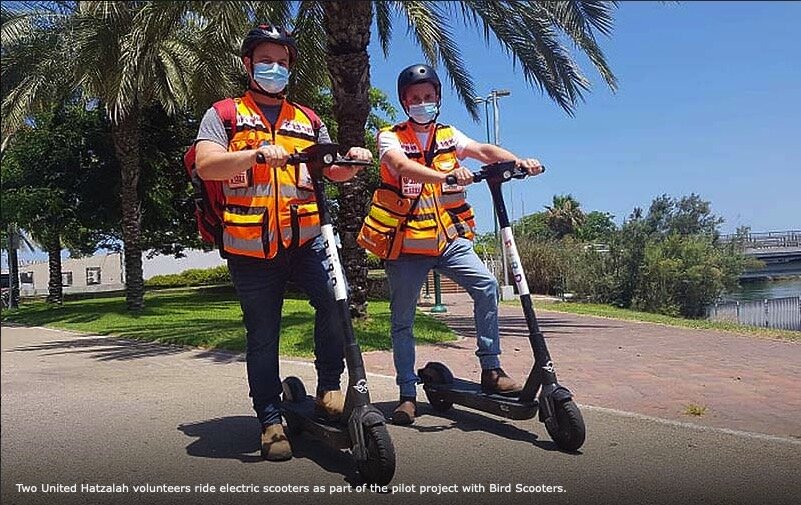““A Widnes dad has slated police for seizing an electric scooter from his teenage son who suffers fatigue due to a medical condition.”
Anthony Joshua's Unconventional E-Scooter Commute
Maximizing Efficiency: E-Scooters vs. Traditional Commute
”It is another example of technology getting ahead of the law, some say. Attempts to outlaw drones failed because they quickly became established. Likewise e-scooters are in use and widely advertised.”
“The public are suffering unprecedented peacetime restrictions on travel, and e-scooters could be a solution.”
Click Here for original article, The Times.
e-scooter picture credit “ID 168780454 © Razvan Nitoi | Dreamstime.com”
Join the E-Scooter Revolution: Government Consultation Open
Coronavirus: How will you commute to work after lockdown?
E-Scooter Inquiry Launched by UK Transport Committee: Urban Landscape Changing?
Genoa's Civil Protection Adopts Electric Unicycles for Patrolling
Revolutionising Roads: E-Scooters Enter Government Trials
The Future is Electric: Baguio Police Embrace E-Scooters
The picturesque city of Baguio, known for its cool climate and beautiful landscapes, is taking a progressive step forward as the local police force embraces the use of electric scooters (e-scooters) for their daily operations.
This eco-friendly and efficient mode of transportation not only contributes to the city's commitment to environmental sustainability but also allows the police to effectively patrol and respond to incidents more quickly.
The Baguio Police Force Goes Green
In a bid to reduce their carbon footprint and improve their mobility, the Baguio police force has incorporated e-scooters into their daily operations. These battery-powered vehicles provide a quiet and efficient means of transport, allowing officers to cover more ground and respond to emergencies in a timely manner.
Electric scooters offer numerous benefits for the police force, including reduced fuel costs, easier parking, and the ability to navigate through congested areas with ease. This innovative approach to transportation not only benefits the police force but also sets an example for the local community and other law enforcement agencies in the country.
Training and Safety
To ensure that officers are well-equipped to handle e-scooters, the Baguio police force has implemented a comprehensive training program. This program covers the proper handling and maintenance of e-scooters, as well as safety guidelines for operating the vehicles on the city's roads.
In addition to the training program, the police force is also focused on ensuring the safety of both its officers and the general public. Officers are required to wear helmets and other protective gear while using electric scooters and must adhere to local traffic regulations. The electric scooters are also equipped with lights and sirens to alert pedestrians and other road users of their presence.
Challenges and Public Perception
While the use of electric scooters by the Baguio police force has garnered positive feedback from the local community, there are still challenges to overcome.
One of the main concerns is the limited battery life of e-scooters, which may affect an officer's ability to respond to incidents in a timely manner. To combat this issue, the police force has strategically placed charging stations throughout the city, ensuring that officers have access to a fully charged e-scooter when needed.
The public's perception of e-scooters as a legitimate mode of transportation for law enforcement is also a challenge that the Baguio police force must address. By demonstrating the efficiency and effectiveness of e-scooters in their daily operations, the police force aims to change public opinion and promote the benefits of this eco-friendly mode of transport.
The Baguio police force's adoption of electric scooters is a testament to the city's commitment to environmental sustainability and innovation. By embracing this green mode of transportation, the police force not only reduces its carbon footprint but also sets a positive example for the local community and other law enforcement agencies in the country. As the city of Baguio continues to evolve and grow, the use of e-scooters by its police force serves as a shining example of progress and environmental responsibility.
Why E-Scooters Should Be Legal: A Mayoral Candidate's Perspective
“Lib Dem Siobhan Benita called for the law to be changed to permit electric scooters to be ridden in cycle lanes and on roads.”














